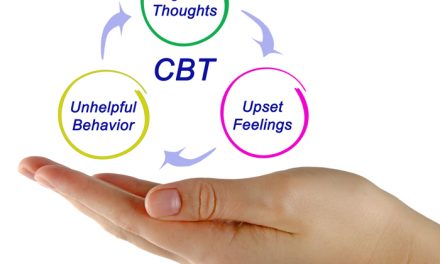Have you heard of the “negativity bias”? In the aptly named article “What is Negativity Bias?,” Kendra Cherry explains it this way:
The negativity bias is our tendency not only to register negative stimuli more readily but also to dwell on these events. Also known as positive-negative asymmetry, this negativity bias means that we feel the sting of a rebuke more powerfully than we feel the joy of praise….
As humans, we tend to:
- Remember traumatic experiences better than positive ones.
- Recall insults better than praise.
- React more strongly to negative stimuli.
- Think about negative things more frequently than positive ones.
Respond more strongly to negative events than to equally positive ones.
This bias, for which humans seem to be hardwired, can have a negative impact on mental health and overall quality of life. It can also be particularly dangerous for a person who is in recovery from a substance use disorder. A persistent focus on the more negative aspects of life can all too easily nudge you toward a relapse.
As a result, it is important to remind yourself to keep your focus on the positive as often as you are able. This conscious decision to overcome your personal negativity bias is a wonderful way to shore up your mental health and protect your hard-won sobriety.
We have some suggestions for how you can shift your thinking toward the positive.
Take Time to Reflect on What You Are Grateful For
You have probably heard someone say something akin to, “You should count your blessings.” Turns out, that is a great idea. Reflecting on what you are grateful for can be a powerful way to ensure you spend some time each day focused on the positive rather than the negative.
A daily gratitude journal—in which you record three things you are grateful for—can be a helpful way to formalize the practice of being grateful. A gratitude journal also gives you the opportunity to review past entries when it feels difficult to be grateful in the present moment.
Another gratitude practice that can be helpful is writing thank-you notes. These do not necessarily need to be limited to notes you write after an individual gives you a gift. Instead, you could get in the habit of writing notes to people more regularly to tell them how much they mean to you and what you appreciate about them. This is an uplifting practice for you as well as for the people to whom you write. And it supports your ongoing recovery as you reflect on the people who make your life better and who are worth staying sober for.
Be Mindful in the Moment Rather than Ruminating or Worrying
Our negativity basis can lead to ongoing reflections on the past—usually the negative aspects of the past—and to intense feelings of anxiety about the future. For a person in recovery, that can look like ongoing regret for drug or alcohol use (including all the negative repercussions) and lots of worry about experiencing a relapse.
Practicing mindfulness offers an alternative. Being mindful simply means staying present in the current moment rather than letting your brain replay the past or speculate about the future.
Learning to be mindful generally involves a variety of exercises that help you learn to focus on your breath while allowing your thoughts and feelings to pass through your brain like clouds pass through the sky. As you learn to do this, you will likely find that the skills are transferable to your day-to-day life. Staying in the present moment serves you well in terms of ongoing calmness, which in turn can provide a range of benefits from, for example, strengthening relationships with others to (essentially) maintaining your sobriety.
Keep Being Hopeful About Your Future
We noted above that many of us tend to worry about the future. It is far more helpful, however, to be hopeful about your future. When you turn your thoughts to the future, it can be useful to remember that a sober future offers the most opportunity for reaching your goals and building the life you would most like to have.
Pessimism about the future has a tendency to undermine your pursuit of ongoing improvement and ongoing sobriety. Frontloading optimism is good for your mental health and good for your recovery.
We Are Here to Help
When you are struggling with drugs or alcohol, it can be all but impossible to feel grateful, mindful, or hopeful. A substance use disorder disrupts your physical and mental health and can devastate many different areas of your life.
Regaining your sobriety, on the other hand, opens up a world of positive possibilities. At The Aviary Recovery Center, we create personalized treatment plans designed to help you reclaim your sobriety and your life. Located near St. Louis, Missouri, The Aviary Recovery Center has been recognized as one of the best treatment centers in the country. When you are ready to make a change for the better, we are ready and able to help.










